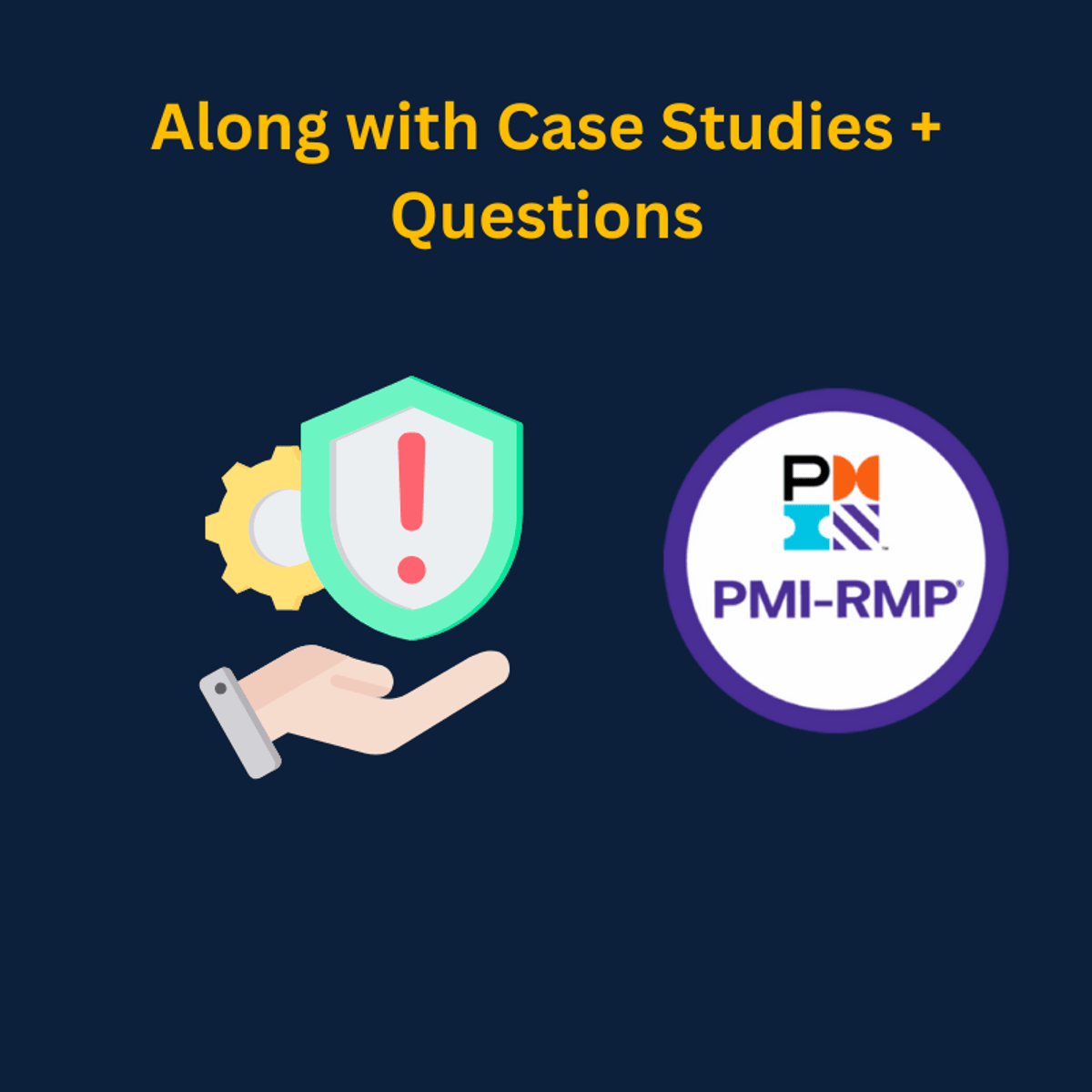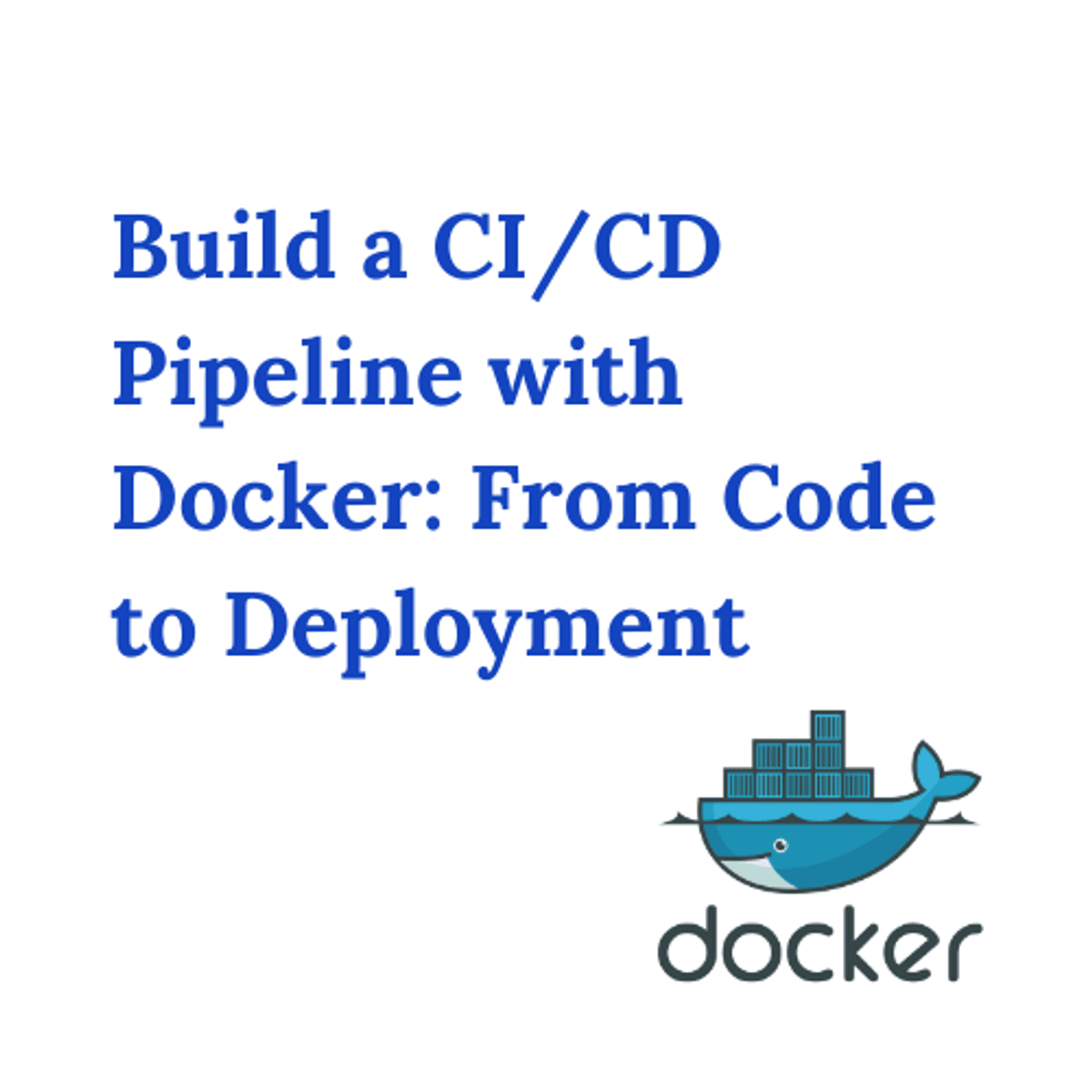Technical Project Manager
Technical Project Manager: Charting the Course for Technological Innovation
A Technical Project Manager (TPM) serves as the crucial link between intricate technical endeavors and successful project outcomes. They navigate the complexities of technology-driven initiatives, guiding teams of engineers, developers, and other specialists to deliver products, systems, or features on time and within scope. TPMs possess a unique blend of project management acumen and deep technical understanding, allowing them to effectively plan, execute, and oversee projects involving software development, IT infrastructure, hardware engineering, or other specialized technical domains.
Working as a Technical Project Manager can be deeply engaging. You get to operate at the intersection of technology and business strategy, translating high-level goals into tangible technical deliverables. Leading talented technical teams, solving complex problems, and seeing innovative ideas come to life offer immense satisfaction. This role provides a vantage point to influence product direction and witness the direct impact of technology on users and the market.
Overview of Technical Project Management
Understanding the role of a Technical Project Manager begins with recognizing its distinct place within an organization and the broader field of project management itself. It's a specialized function requiring a specific skill set tailored to technology-centric projects.
Definition and Scope
At its core, technical project management involves applying project management principles specifically to projects with a significant technological component. This means not just managing schedules and budgets, but also understanding the technical nuances, risks, and interdependencies inherent in developing software, deploying infrastructure, or engineering hardware.
The scope encompasses the entire project lifecycle, from initial concept and requirements gathering through design, development, testing, deployment, and maintenance. A TPM ensures that the technical solution aligns with business objectives and meets quality standards, while managing resources and stakeholder expectations.
This role requires a grasp of technical concepts to facilitate communication and decision-making. It's about understanding the 'what' and 'why' behind technical tasks, not just the 'when'.
Role Within Organizations
Technical Project Managers often act as pivotal figures within cross-functional teams. They bridge the communication gap between highly technical team members (like software engineers, data scientists, or network architects) and non-technical stakeholders (such as marketing, sales, or executive leadership).
They ensure everyone is aligned on project goals, progress, and potential roadblocks. Their ability to translate technical jargon into understandable business terms, and vice versa, is critical for smooth project execution and informed decision-making across the organization.
TPMs report progress, manage dependencies between teams, and often play a key role in resource allocation and prioritization within the technical departments.
Key Differences from General Project Management
While sharing foundational principles with general project management, the "technical" aspect significantly differentiates the TPM role. A general Project Manager might focus primarily on timelines, budgets, resource coordination, and process adherence across various project types.
A Technical Project Manager, however, needs a deeper understanding of the specific technologies involved. They must be comfortable discussing system architecture, software development lifecycles (SDLC), database design, cloud infrastructure, or specific engineering challenges. This technical literacy allows them to identify risks, assess feasibility, and make informed trade-offs related to the technical solution itself.
This distinction is crucial; TPMs often come from technical backgrounds and can engage more substantively with the development team on technical matters.
Industries Where the Role Is Prevalent
Technical Project Managers are in high demand across a wide array of industries where technology is a core driver of business value. The most prominent sector is Information Technology, encompassing software development, cloud computing, cybersecurity, and IT infrastructure services.
Other key industries include telecommunications, hardware manufacturing, aerospace and defense, automotive (especially with the rise of autonomous vehicles), financial services (FinTech), healthcare technology (HealthTech), biotechnology, and e-commerce. Essentially, any organization developing or implementing complex technical solutions likely needs skilled TPMs.
The specific technical knowledge required may vary by industry (e.g., embedded systems in automotive vs. web applications in e-commerce), but the core competencies remain consistent.
Key Responsibilities of a Technical Project Manager
The day-to-day activities of a Technical Project Manager revolve around ensuring the successful delivery of technology projects. This involves a range of responsibilities that span planning, execution, communication, and risk management.
End-to-End Project Lifecycle Management
TPMs oversee projects from inception to completion. This starts with project initiation, defining goals and feasibility. Planning involves creating detailed project plans, defining scope, outlining tasks, setting timelines (Gantt charts, roadmaps), allocating resources, and establishing budgets.
During execution, they guide the team, monitor progress against the plan, manage changes, and ensure deliverables meet quality standards. Monitoring involves tracking key performance indicators (KPIs), managing risks, and reporting status. Finally, closing involves formal project acceptance, documentation handover, and conducting post-project reviews or retrospectives.
These online courses provide a solid foundation in project initiation and planning, crucial first steps in the project lifecycle.
Technical Requirement Analysis and Scope Definition
A critical responsibility is understanding and defining the technical requirements of the project. This involves working closely with stakeholders (product managers, business analysts, clients) to understand business needs and translating them into specific, measurable, achievable, relevant, and time-bound (SMART) technical specifications.
TPMs must accurately define the project scope, outlining what is included and, just as importantly, what is not. They need the technical depth to assess the feasibility of requirements, identify potential technical challenges early, and manage scope creep effectively throughout the project.
Understanding how to analyze complex problems and model solutions is vital for defining requirements accurately.
Stakeholder Communication Strategies
Effective communication is paramount. TPMs must communicate complex technical information clearly and concisely to diverse audiences, including non-technical executives, clients, and cross-functional teams. They need to tailor their communication style and content appropriately.
Responsibilities include regular status reporting, facilitating meetings (stand-ups, reviews, planning sessions), managing expectations, resolving conflicts, and ensuring alignment among all stakeholders. Strong interpersonal and presentation skills are essential for building trust and maintaining project momentum.
Developing strong soft skills, particularly communication, is essential for interacting effectively with diverse stakeholders in technical environments.
Risk Mitigation and Contingency Planning
Technical projects are inherently risky due to changing technologies, integration challenges, unforeseen complexities, and resource constraints. TPMs are responsible for proactively identifying potential technical and project risks early in the lifecycle.
This involves assessing the likelihood and impact of each risk and developing mitigation strategies to reduce their probability or effect. They also create contingency plans (Plan B) to address risks if they materialize, ensuring the project can adapt and stay on track despite setbacks.
Understanding how to develop and implement risk response strategies is a core competency for any project manager, especially in technical fields.
These books offer insights into managing the complexities and risks associated with software development and delivery.
Core Skills and Competencies
Success as a Technical Project Manager hinges on a combination of deep technical understanding, robust project management methodologies, and strong leadership abilities. Certifications can further validate these competencies.
Technical Literacy
TPMs must possess sufficient technical knowledge to understand the project's domain. This includes familiarity with the Software Development Lifecycle (SDLC) methodologies (e.g., Waterfall, Agile, DevOps), core concepts of IT infrastructure (servers, networking, cloud platforms like AWS, Azure, GCP), database technologies, and software architecture principles (e.g., microservices, APIs).
While not typically coding day-to-day, they need to understand technical discussions, ask relevant questions, assess technical risks, and contribute to technical decision-making. This literacy builds credibility with the technical team and enables effective communication with stakeholders.
Building foundational knowledge in cloud infrastructure, microservices, and software architecture is essential for technical literacy.
Agile and Scrum Methodologies
Agile methodologies, particularly Scrum and Kanban, are prevalent in technology projects. TPMs must be proficient in Agile principles, practices, and frameworks. This includes managing product backlogs, facilitating sprint planning, daily stand-ups, sprint reviews, and retrospectives.
Mastery involves understanding Agile estimation techniques (story points), tracking progress (burndown/burnup charts), and fostering an Agile mindset within the team. Familiarity with Agile project management tools like Jira, Trello, or Asana is also crucial.
Developing expertise in Agile, Scrum, and related tools is critical for managing modern technical projects.
Cross-Functional Team Leadership
TPMs lead teams composed of individuals with diverse technical skills and roles (e.g., front-end developers, back-end developers, QA engineers, UI/UX designers, DevOps engineers). Effective leadership involves motivating the team, fostering collaboration, delegating tasks appropriately, and resolving conflicts.
They must create an environment where team members feel empowered and accountable. This requires strong communication, empathy, negotiation skills, and the ability to make decisive choices, often under pressure.
Leadership isn't just about directing; it's about enabling the team to perform at its best.
Relevant Certifications
Certifications can validate a TPM's knowledge and skills, enhancing career prospects. Common and respected certifications include:
- PMP (Project Management Professional): Offered by PMI (Project Management Institute), this is a globally recognized standard for project management, though less tech-specific.
- CSM (Certified ScrumMaster) / CSPO (Certified Scrum Product Owner): Offered by Scrum Alliance and others, these validate understanding of the Scrum framework.
- PMI-ACP (Agile Certified Practitioner): Also from PMI, focuses specifically on Agile principles and practices.
- ITIL (Information Technology Infrastructure Library): Focuses on IT service management (ITSM) best practices, relevant for IT infrastructure projects.
- Cloud Platform Certifications (AWS, Azure, GCP): While not strictly PM certs, certifications like AWS Certified Solutions Architect or Azure Administrator demonstrate valuable technical literacy.
While certifications are beneficial, practical experience remains the most critical factor for success.
Online courses can significantly aid in preparing for these valuable certifications.
Formal Education Pathways
While practical experience is paramount, a strong educational foundation can significantly accelerate a career in Technical Project Management. Certain academic paths provide the necessary technical and managerial grounding.
Relevant Undergraduate Degrees
A bachelor's degree is often the minimum requirement, typically in a technical field. Degrees in Computer Science provide a deep understanding of software development, algorithms, and data structures. Engineering degrees (Software, Electrical, Computer, Mechanical) instill rigorous problem-solving skills and systems thinking.
Information Technology (IT) or Management Information Systems (MIS) programs blend technical knowledge with business applications. Coursework in programming, databases, networking, operating systems, and systems analysis provides a solid technical base.
Consider supplementing technical degrees with business or management minors, or vice-versa, to build a well-rounded profile.
These courses offer introductions to engineering design concepts.
Graduate Programs with Technical Management Focus
For those seeking advanced roles or transitioning from purely technical positions, graduate degrees can be highly beneficial. Master's programs in Engineering Management, Technology Management, Information Systems Management, or Project Management (with a technical concentration) directly align with the TPM role.
An MBA (Master of Business Administration) with a specialization in technology, information systems, or project management can also be a valuable pathway, particularly for those aiming for leadership positions bridging technology and business strategy.
These programs often combine advanced technical topics with coursework in leadership, finance, strategy, and organizational behavior.
Research Opportunities
For individuals inclined towards academia or R&D-focused TPM roles, research opportunities during undergraduate or graduate studies can be advantageous. Research in areas like project management software, systems engineering optimization, human-computer interaction (HCI) for project tools, or AI applications in project management can provide specialized expertise.
Engaging in research develops critical thinking, analytical skills, and the ability to tackle complex, ill-defined problems – all valuable assets for a TPM.
Presenting research at conferences or publishing papers can also enhance visibility and credibility.
University-Industry Partnership Programs
Many universities foster strong ties with industry through programs like internships, cooperative education (co-ops), and industry-sponsored capstone projects. Participating in these programs offers invaluable real-world experience.
Internships or co-ops at technology companies provide exposure to actual technical projects, team dynamics, and industry practices. Capstone projects often involve solving a real business problem for a sponsoring company, allowing students to apply their technical and project management skills in a practical setting.
These experiences not only build skills but also provide crucial networking opportunities and can often lead directly to job offers upon graduation.
Online Learning and Professional Development
Beyond formal education, continuous learning through online resources is vital for staying current in the fast-evolving tech landscape and honing project management skills. Online platforms offer flexible and accessible ways to acquire new knowledge and prepare for career advancement or transitions.
Technical vs. Managerial Skill-Building Pathways
Online learning allows individuals to tailor their development path. Aspiring TPMs can focus on strengthening technical weaknesses (e.g., learning about cloud computing, AI fundamentals, or a specific programming language) or bolstering managerial competencies (e.g., Agile methodologies, risk management, stakeholder communication).
OpenCourser aggregates thousands of courses, making it easy to find resources covering both technical skills and project management fundamentals. Learners can explore courses on specific software like iOS development or general PM principles.
These courses cover fundamental project management principles and software-specific project management techniques.
For technical upskilling, consider courses in areas like mobile development, specific frameworks, or foundational concepts.
Open-Source Project Participation
Contributing to open-source projects offers a practical way to gain hands-on technical experience, understand collaborative development workflows (like using Git/GitHub), and interact with experienced developers. It demonstrates initiative and passion for technology.
Platforms like GitHub host countless open-source projects across various domains. Find a project that aligns with your technical interests, start with small contributions (like fixing bugs or improving documentation), and gradually take on more significant tasks. This experience is highly valued by employers.
Certification Preparation Strategies
Online courses, bootcamps, and practice exams are excellent resources for preparing for certifications like PMP, CSM, or cloud platform certifications (AWS, Azure, GCP). These resources often provide structured learning paths, cover exam objectives comprehensively, and offer realistic test simulations.
Many platforms offer dedicated certification prep tracks. Combining online coursework with study guides and practice tests is an effective strategy. Check OpenCourser Deals for potential savings on certification prep courses.
Certification preparation courses help focus study efforts and increase the likelihood of passing exams.
Portfolio Development Through Simulated Projects
For those lacking direct TPM experience, especially career changers, building a portfolio showcasing relevant skills is crucial. Online platforms offer capstone projects, guided projects, and simulations where learners can manage a project from start to finish.
These projects often require creating deliverables like project charters, work breakdown structures (WBS), risk registers, and status reports, mirroring real-world TPM tasks. Completing such projects demonstrates practical application of learned concepts and provides tangible evidence of capabilities to potential employers.
Engaging in capstone projects provides invaluable hands-on experience that can be highlighted in job applications.
OpenCourser's Learner's Guide offers strategies for showcasing skills and building a compelling portfolio using online learning experiences.
Career Progression and Opportunities
A career as a Technical Project Manager offers significant growth potential, with diverse pathways leading from entry-level roles to executive leadership, consulting, or entrepreneurship.
Entry-Level Technical Coordinator Roles
Many individuals start in roles like Project Coordinator, Technical Coordinator, or Junior Project Manager. These positions often involve supporting senior TPMs, managing smaller project components, tracking tasks, coordinating meetings, and handling documentation.
These roles provide foundational experience in project management processes and exposure to technical environments. A background in IT support, quality assurance, or junior development can also serve as a stepping stone.
Gaining experience in coordinating tasks and understanding project workflows is key at this stage.
Mid-Career Specialization Paths
As TPMs gain experience, they often specialize. Some might focus on managing large-scale IT infrastructure projects (e.g., cloud migrations, network upgrades). Others specialize in software development projects, mastering Agile methodologies and specific tech stacks.
Further specialization can occur within Research and Development (R&D) projects, managing innovation pipelines, or pivoting towards Product Management, focusing more on product strategy and vision while still leveraging technical understanding. Some may become Technical Program Managers, overseeing multiple related projects.
Choosing a specialization often aligns with individual technical strengths and interests.
Executive-Level Transitions
Experienced and successful TPMs can advance to senior leadership roles. Potential positions include Director of Project Management, Director of Engineering, VP of Engineering, Head of Product, or even Chief Technology Officer (CTO).
These roles require strong strategic thinking, business acumen, exceptional leadership skills, and the ability to manage large teams and budgets. Transitioning to executive levels often involves demonstrating a consistent track record of delivering complex, high-impact technical projects.
Moving into executive roles requires broadening focus from individual projects to departmental or organizational strategy.
Consulting and Entrepreneurship Opportunities
The expertise gained as a TPM is highly valuable in consulting. Experienced TPMs can work for consulting firms, advising clients on managing technical projects, implementing Agile practices, or optimizing development processes. Alternatively, they can operate as independent consultants.
Some TPMs leverage their technical and business insights to launch their own technology startups, either developing innovative products or offering specialized project management services. This path requires a strong entrepreneurial spirit, risk tolerance, and business development skills.
Consulting roles often require a blend of deep expertise and strong client-facing skills.
Industry Applications and Emerging Sectors
The application of technical project management varies across industries, influenced by factors like regulation, market dynamics, and organizational structure. Understanding these nuances is important for contextualizing the role.
Tech Sector vs. Traditional Industry Implementations
In the tech sector (software, hardware, internet services), technical project management is often deeply integrated with Agile methodologies. Speed, innovation, and adaptability are paramount. Projects might involve rapid development cycles, continuous integration/continuous delivery (CI/CD), and managing emerging technologies.
In more traditional industries (e.g., manufacturing, finance, healthcare), TPMs might blend Agile with more structured, phase-gated approaches (like Waterfall) due to regulatory requirements, complex physical integrations, or legacy systems. Risk management and meticulous documentation can be more heavily emphasized.
The core TPM skills apply across sectors, but the specific methodologies and priorities may differ.
Regulatory Impacts on Project Management Practices
Industries like finance (SOX, Dodd-Frank), healthcare (HIPAA), and pharmaceuticals (FDA regulations) operate under strict regulatory frameworks. These regulations heavily influence project management practices.
TPMs in these sectors must ensure projects comply with relevant laws and standards. This often translates to more rigorous documentation, formalized change control processes, extensive testing and validation requirements, and robust security and data privacy measures integrated throughout the project lifecycle.
Failure to comply can result in significant legal and financial penalties, making regulatory adherence a top priority.
Global Market Demand Analysis
The demand for skilled Technical Project Managers is strong globally, driven by ongoing digital transformation across industries. According to the U.S. Bureau of Labor Statistics, employment of project management specialists is projected to grow, with many openings expected each year, reflecting the need for professionals who can lead complex projects, including technical ones. You can find more details in the BLS Occupational Outlook Handbook.
Growth is particularly robust in technology hubs and sectors undergoing rapid technological change. Emerging economies also show increasing demand as they develop their digital infrastructure and tech industries.
Remote work trends have further broadened the geographic scope of opportunities for TPMs.
Startup vs. Enterprise Environment Comparisons
Working as a TPM in a startup versus a large enterprise offers distinct experiences. Startups typically feature fast-paced environments, broader roles (TPMs might wear multiple hats), fewer resources, and higher ambiguity. Agility and rapid iteration are key.
Enterprises offer more structure, established processes, greater resources, and potentially larger-scale, more complex projects. However, they may also involve more bureaucracy and slower decision-making. Career progression might be more formalized.
The choice between startup and enterprise depends on individual preferences for work environment, risk tolerance, and career goals.
Challenges in Technical Project Management
While rewarding, the role of a Technical Project Manager is not without its hurdles. Navigating technical complexity, resource constraints, and human factors requires resilience and strategic problem-solving.
Technical Debt Management Strategies
Technical debt refers to the implied cost of rework caused by choosing an easy (limited) solution now instead of using a better approach that would take longer. TPMs often face pressure to deliver features quickly, which can lead to accumulating technical debt.
Managing this involves understanding its impact, advocating for time to address it (e.g., refactoring, upgrading libraries), and balancing new feature development with maintaining system health. Strategies include scheduling regular "tech debt sprints" or allocating a percentage of development capacity to address it.
Ignoring technical debt can lead to slower development, increased bugs, and system instability over time.
Balancing Innovation with Project Constraints
Technology evolves rapidly, and teams often want to explore or implement the latest tools and architectures. However, TPMs must balance this desire for innovation with the practical constraints of budget, timeline, and project scope.
Introducing unproven technologies can introduce significant risks. The challenge lies in fostering innovation responsibly – allowing for experimentation where appropriate (e.g., R&D projects, proof-of-concepts) while ensuring the core project deliverables remain on track using stable, well-understood technologies.
This requires careful assessment of the risk-reward trade-off for adopting new tech within a project.
Distributed Team Coordination Challenges
With the rise of remote and hybrid work models, coordinating geographically distributed technical teams presents unique challenges. Communication can be more difficult, requiring deliberate effort and reliance on collaboration tools.
Time zone differences can complicate scheduling meetings and ensuring timely responses. Maintaining team cohesion, shared understanding, and a positive team culture requires proactive management and strong leadership skills adapted for virtual environments.
Effective use of communication platforms, clear documentation, and structured virtual meetings are essential.
Vendor/Third-Party Integration Complexities
Modern technical projects often rely on integrating third-party software, APIs, hardware components, or services from external vendors. Managing these dependencies adds complexity.
TPMs must coordinate with vendor teams, manage contracts and service level agreements (SLAs), troubleshoot integration issues, and handle potential delays or changes from the vendor side. Clear communication channels and well-defined integration points are crucial.
Successful integration requires careful planning and ongoing vendor relationship management.
Future Trends and Role Evolution
The field of technical project management is constantly evolving, shaped by technological advancements and changing business needs. Staying ahead of these trends is crucial for long-term career success.
AI-Driven Project Management Tools
Artificial Intelligence (AI) is increasingly being integrated into project management tools. AI can assist with tasks like predictive scheduling, automated risk identification, resource optimization recommendations, and generating status reports.
TPMs will need to understand how to leverage these AI capabilities effectively, interpret AI-driven insights, and oversee AI tools rather than performing these tasks manually. This shift requires adapting skills towards managing AI-assisted workflows. Gartner insights suggest AI will significantly transform project management practices.
Understanding AI concepts and prompt engineering will become increasingly valuable for TPMs.
Sustainability-Focused Project Frameworks
Growing awareness of environmental, social, and governance (ESG) factors is influencing project management. There's an increasing emphasis on incorporating sustainability goals into project planning and execution.
TPMs may need to consider the environmental impact of technical solutions (e.g., energy consumption of data centers), ensure ethical sourcing of components, or design projects that contribute to social good. Frameworks integrating sustainability metrics are emerging.
This trend requires TPMs to broaden their perspective beyond traditional scope, time, and cost constraints.
Hybrid Remote/In-Person Team Models
The shift towards hybrid work models, with teams split between remote and office locations, is becoming a permanent fixture. TPMs must master managing these blended environments effectively.
This requires refining communication strategies, ensuring equitable participation for all team members regardless of location, leveraging collaboration technologies adeptly, and adapting leadership styles to maintain team cohesion and productivity in a hybrid setting.
Successfully navigating hybrid models is becoming a core competency for modern project leadership.
Cybersecurity Integration in Project Lifecycles
With rising cyber threats, integrating security considerations throughout the entire project lifecycle (often termed DevSecOps) is becoming standard practice, not an afterthought. TPMs need a foundational understanding of cybersecurity principles.
They must work with security teams to incorporate security requirements early in the design phase, ensure secure coding practices are followed during development, plan for security testing, and manage security-related risks throughout the project.
This requires closer collaboration between project management, development, operations, and security teams.
Frequently Asked Questions (FAQs)
Embarking on or navigating a career as a Technical Project Manager often brings up common questions. Here are answers to some frequently asked questions.
Typical Career Entry Points and Timelines
There isn't one single path. Many TPMs transition from technical roles like software engineering, systems administration, or quality assurance after gaining several years of experience and demonstrating leadership potential. Others enter through junior project management or project coordinator roles, gradually taking on more technical projects.
The timeline varies significantly based on individual background, experience accumulation, and opportunities. It typically takes several years post-graduation or entry into the workforce to gain the necessary blend of technical and project management skills for a dedicated TPM role.
Preparing for the job search and interviews is crucial, regardless of the entry point.
Salary Ranges Across Industries/Experience Levels
Salaries for Technical Project Managers vary based on factors like years of experience, geographic location, industry, company size, and specific technical expertise. Generally, TPM roles command competitive salaries due to the blend of technical and managerial skills required.
Entry-level positions might start lower, while experienced TPMs in high-demand sectors (like software or fintech) in major metropolitan areas can earn significantly higher salaries. Consulting roles may also offer higher earning potential. Reputable sources like the PMI Salary Survey or salary data websites (e.g., Robert Half, Glassdoor) provide more specific, up-to-date ranges.
Certifications like PMP can sometimes influence salary negotiations, but experience and demonstrated impact are usually the primary drivers.
Transition Strategies from Technical Individual Contributor Roles
Transitioning from a technical role (like developer or engineer) to a TPM is a common and viable path. Key strategies include actively seeking opportunities to lead small projects or features within your current role, pursuing project management certifications (PMP, CSM), and taking courses on PM fundamentals and leadership.
It's crucial to develop soft skills, particularly communication, negotiation, and stakeholder management. Networking with existing TPMs, finding a mentor, and clearly articulating your desire to move into management to your superiors can also facilitate the transition. Be prepared to shift focus from deep technical execution to overseeing the broader project and team.
This transition can be challenging but rewarding, leveraging existing technical knowledge while developing new managerial skills.
Certification ROI Analysis
The Return on Investment (ROI) for certifications like PMP or CSM can be debated. While some job postings list them as requirements or preferences, many employers prioritize demonstrable experience and skills over certifications alone.
Certs can be valuable for structuring knowledge, learning best practices, and signaling commitment to the profession, potentially aiding in securing interviews or negotiating salary, especially earlier in a PM career. However, they are not a substitute for real-world experience in successfully delivering complex projects.
The greatest ROI often comes from applying the knowledge gained during certification preparation to improve project outcomes.
Remote Work Prevalence and Requirements
Remote work is relatively common for Technical Project Managers, particularly in the technology sector. Many companies adopted remote or hybrid models, and roles focused on managing software or IT projects often lend themselves well to remote execution.
Success in a remote TPM role requires excellent communication skills (both written and verbal), strong self-discipline, proficiency with collaboration tools (video conferencing, chat platforms, shared documents, project management software), and the ability to build rapport and manage teams virtually.
Some companies may still prefer on-site presence, especially for hardware-related projects or roles requiring frequent interaction with physical infrastructure or specific departments.
Age-Related Considerations in Career Transitions
Concerns about ageism can arise when considering a mid-career transition into tech or project management. However, experience is a significant asset. Mature professionals transitioning into a TPM role can leverage years of industry knowledge, problem-solving skills, and professional maturity.
The key is demonstrating adaptability, a willingness to learn new technologies and methodologies (like Agile), and highlighting how past experiences translate to project management competencies. Focusing on continuous learning, networking, and potentially obtaining relevant certifications can overcome age-related biases.
Emphasize the value of your accumulated wisdom and experience, combined with fresh knowledge of current PM practices.
The journey to becoming a Technical Project Manager involves a dynamic blend of technical understanding, leadership capability, and strategic planning. It's a demanding but ultimately rewarding career path for those passionate about guiding technological innovation from concept to reality. Whether you are just starting to explore this field or looking to transition, resources available through OpenCourser, including courses in project management and technology, can provide the knowledge and skills needed to navigate this exciting career. Continuous learning and practical application are key to success in this ever-evolving role.






































































